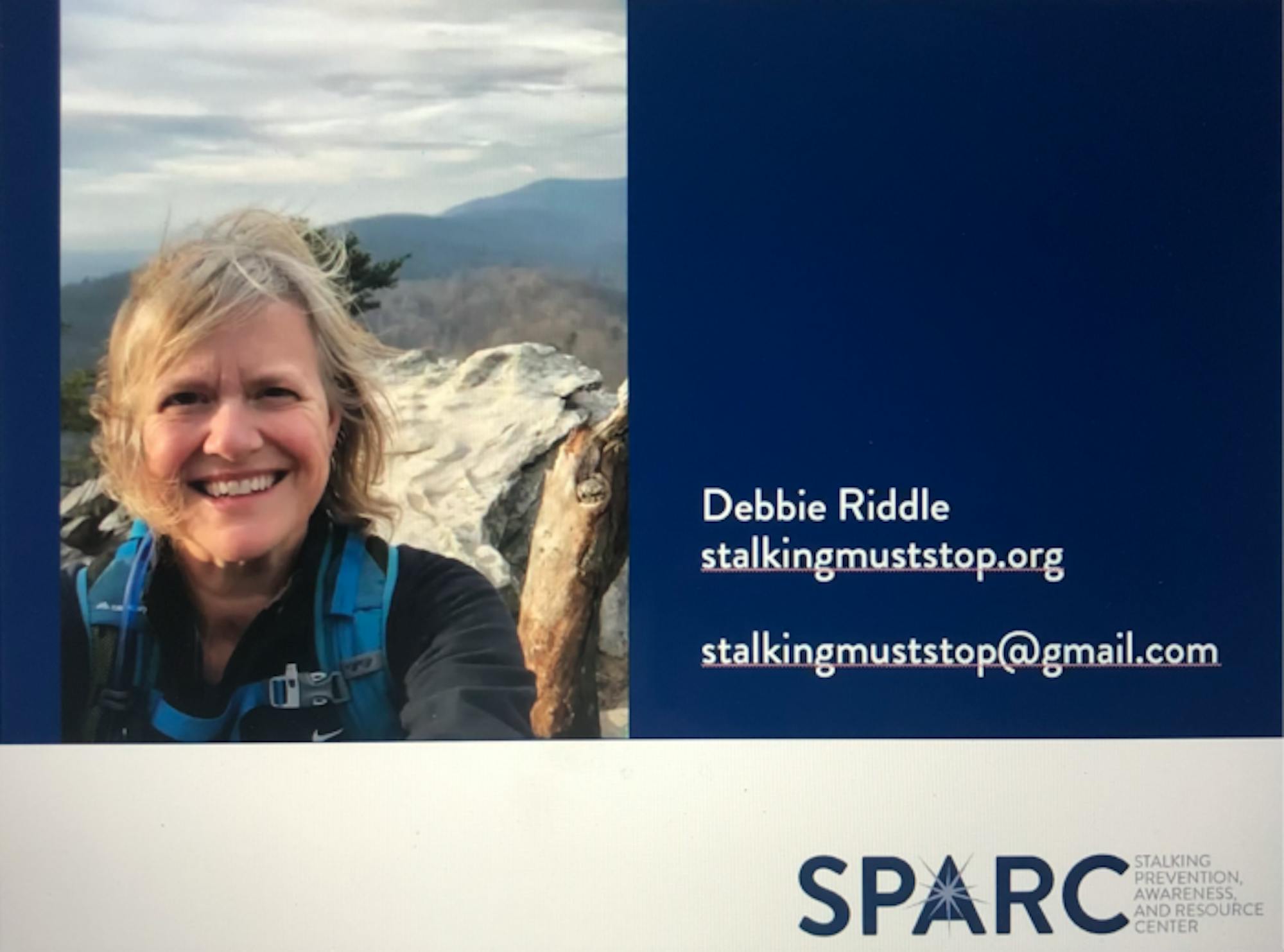Editor's note: This story contains language describing stalking and violence. A list of reporting options and on-campus resources can be found on the Notre Dame, Saint Mary’s and Holy Cross websites.
Activist Debbie Riddle emphasized a singular point in her virtual discussion Tuesday night: “Take stalking seriously.”
Riddle defines stalking as “a pattern of behavior directed at a specific person that is going to cause a reasonable person to feel fear.”
Liz Coulston, Belles Against Violence Office director and Belles Supporting Belles coordinator, said Riddle has been visiting Saint Mary's for years to teach students more about stalking and to share the story of Peggy Klinke, Riddle's younger sister who was attacked and killed by a stalker in 2003.
College students understanding the signs and dangers of stalking is vital, Riddle said, as the majority of stalking victims are between the ages of 18 and 24 years old.
Riddle began to tell her sister's story by explaining the origins of Klinke's stalker. In 1998, Klinke began medical school and started dating a man. This relationship lasted until 2002. Riddle recounted several instances of emotional abuse, invasion of privacy, possessiveness and isolation over the course of Klinke's relationship.
She specifically recalled when Klinke's boyfriend spontaneously showed up at her family home for New Year's without being invited. At this part of the discussion, Riddle paused her story to issue a warning.
“Trust your gut,” she said. “If it feels weird, it’s probably because it is weird.”
In general, 78% of stalkers use more than one mode to stalk — calling, texting, using social media or physically following and harassing their victim — and the majority of victims know their stalker, Riddle said.
After Klinke ended the relationship, the stalking began.
“The most dangerous time in a stalking victim's life is when [the victim] decides to leave, because they don’t know what will happen next,” Riddle said.
Klinke's ex-boyfriend began calling and texting her upwards of 50 times a day, leaving coercive messages and threatening violence.
When Klinke didn’t react, the stalker tried a new tactic. He printed accusatory flyers including her phone number, and distributed them all over the city of Albuquerque, New Mexico, where they both lived. Klinke took the flyers to the police, but they offered little help, Riddle said.
Despite her best efforts to stay hidden from her stalker, Klinke was discovered and attacked six days before her scheduled stalking trial. Police arrived at the scene and attempted to negotiate with the stalker, but were unable to stop him from killing Klinke and then himself.
Riddle reminded the audience that weapons are used in about 20% of stalking cases, with knives being the most heavily utilized. In addition, women are more likely to be stalked than men.
Klinke's experience and early death serves as a reminder to take stalking seriously, Riddle emphasized.
“Stalking is not based on love, these behaviors are really based on power and control,” she said. “They usually fall out of rejection, the stalkers are seeking attention.”
Some victims will question themselves, Riddle said, wondering if they are jumping to conclusions or exaggerating. To avoid this, victims need allies and support, she added.
“Trust the victims' instincts,” Riddle said. “Believe what they're saying.”
Liz Coulston is a confidential resource on the Saint Mary’s campus and the Belles Supporting Belles Coordinator. She can be contacted either by phone at 574-284-4081 or by email at ecoulston@saintmarys.edu













